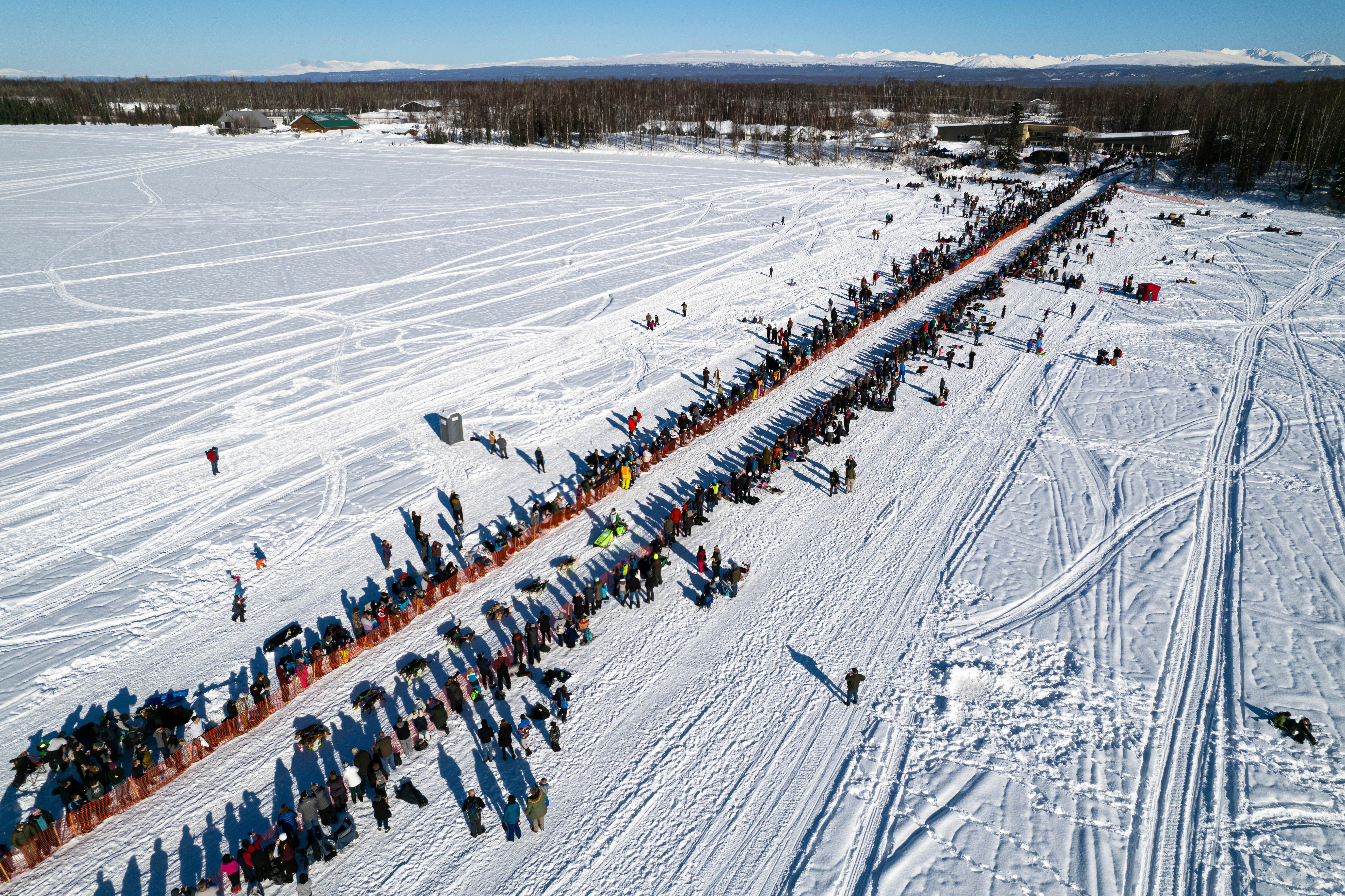Vicious winter storm knocks 6 mushers out of the Iditarod
A vicious ground storm with high winds blowing off the Bering Sea has led to six mushers running at the back of the pack to drop out of this year's Iditarod Trail Sled Dog Race across Alaska

Three additional mushers running at the back of the pack have scratched from this year’s Iditarod Trail Sled Dog Race after accepting assistance during a massive ground storm.
The vicious Friday storm forced six mushers in total to scratch after they sought help in the storm that packed high winds. Two of those mushers needed a rescue off the trial just miles from the end of the nearly 1,000-mile (1,609-kilometer) race across Alaska.
Race marshal Mark Nordman was informed late Friday that Sebastien Dos Santos Borges, a rookie from Chazey-Bons, France, and KattiJo and Jeff Deeter, a married couple from Fairbanks running separate dog teams, accepted help and had scratched, said a Saturday afternoon statement from race officials.
Dos Santos Borges and the Deeters all accepted assistance between the checkpoints of White Mountain and Safety, which is just 22 miles (35 kilometers) from the finish line in Nome.
A White Mountain search and rescue team on snowmobiles assisted the mushers to a Nome Kennel Club shelter cabin, where they rode out the storm.
When conditions improved, Iditarod volunteers were able to assist getting the three and their dog teams to Nome, where the dogs will be checked by veterinarians.
All three mushers were in contact with Nordman while they were at the shelter cabin, and reported their teams were in good health.
Earlier Friday, two mushers had to be rescued, and a third scratched after receiving assistance back to a checkpoint.
Rookie Gerhardt Thiart, a native of South Africa now living in Cheboygan, Michigan, activated his emergency beacon because of the storm and a leg injury. A passerby on a snowmobile happened upon him and took him to White Mountain. He was eventually flown to Nome for evaluation of his injury.
Musher Bridgett Watkins of Fairbanks was able to contact family in Nome for help. Independent of that call, her husband Scotty had left Nome with others on snowmobiles to assist mushers in the storm and he located her. She was taken to the clinic in White Mountain for evaluation and eventually flown to Nome, 77 miles (124 kilometers) away.
Another musher, rookie Sean Williams of Chugiak, also scratched late Friday after receiving assistance back to White Mountain from someone on a snowmobile.
The world’s most famous sled dog race started for 49 mushers March 6 north of Anchorage. The trail took them over two mountain ranges, along the frozen Yukon River and then along the Bering Sea ice on Alaska’s western coast.
Since then, 12 mushers have scratched, half of them on Friday.
Brent Sass of Eureka won the race Tuesday. He had his own bad weather encounter just a few miles from the finish line in high winds blowing off the Bering Sea. He fell off his sled and lost the trail.
He thought he was going to have to hunker down, stopping with his dogs to wait until the weather improved.
“I couldn’t see anything,” he said in a post-race interview.
“The dogs, the only reason we got out of there is because they trusted me to get them back to the trail. And once we got back to the trail, they just took off a hundred miles an hour again, and we were able to stay on the trail and get in here. It was a lot of work,” he said.
There were still four mushers on the trail Saturday evening, making their way from White Mountain to safety.
Bookmark popover
Removed from bookmarks